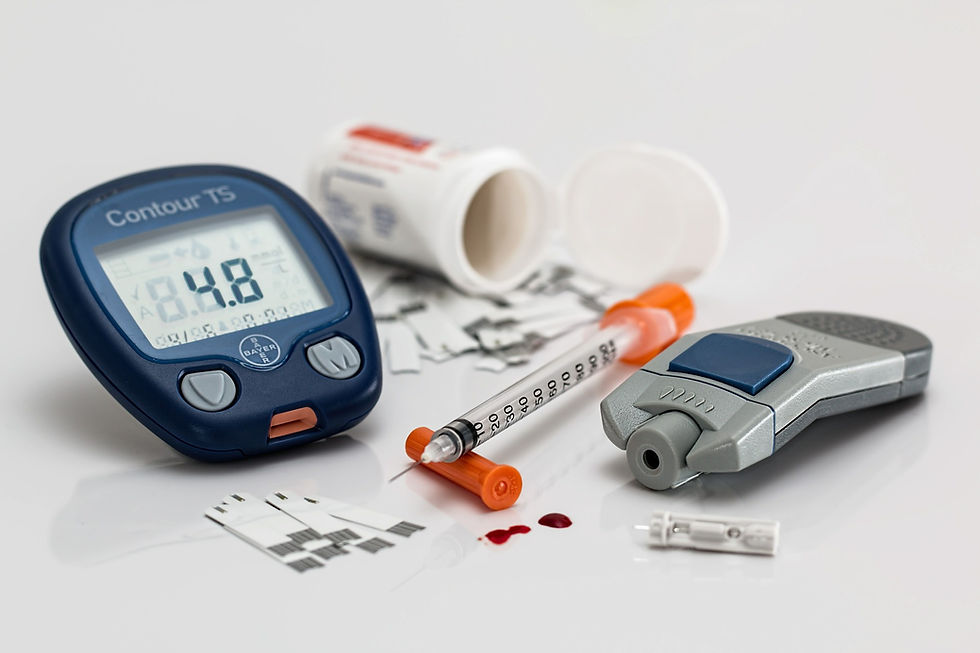Years ago, a physician who suspected a patient had heart disease, diabetes, or arthritis would probably not refer him to a gum specialist. Times have changed. The past 5 to 10 years have seen a growing body of research linking the health of your mouth to the overall health of your body. According to the American Dental Association, 40 percent of people with gum disease also have a chronic health condition. Not taking proper care of your mouth results in bacterial growth, which causes inflammation that not only causes diseases of the teeth and gums but can cause problems for other body systems if left unchecked. Oral problems can also be a symptom of other diseases such as diabetes, arthritis, and heart disease.

Several factors can affect oral health-- it's not just about brushing and flossing. The health of your mouth and teeth is affected by diet (frequent consumption of processed and high-sugar foods/beverages), stress levels, quality of sleep, poor digestion, deficiencies in minerals and vitamins, and medication. Living with a chronic health condition can have detrimental effects on oral health. "For example, many medicines... can reduce the amount of saliva in your mouth, resulting in dry mouth," says Dr. David Albert, associate professor of clinical dentistry at the Columbia University College of Dental Medicine. "Patients with asthma often breathe through their mouths, which can result in dry mouth, increased plaque formation, and gingivitis." As previously mentioned, oral health has been related to several other health concerns such as the following:

Diabetes. One complication of diabetes is gum disease that results from impaired blood flow through the blood vessels. When the gums don't receive sufficient blood flow, they become weak and vulnerable to infection. If diabetes is not properly managed, high glucose levels in the mouth will promote bacterial growth.
Heart disease. Chronic bacterial infection of the gums, or periodontal disease (PD), has been linked to an increased risk of heart attack and stroke. Researchers are still examining the exact reasons for this connection, but it has been suggested that PD increases inflammation, a risk factor for heart disease. It's also possible that bacteria from the mouth travels into the bloodstream and adds to the buildup of plaque in the arteries. While there isn't a direct cause-and-effect relationship, both PD and heart disease share common risk factors including smoking and diabetes.
Arthritis. In a recent small study, bacteria from the mouth was found in joint fluid in people with knee arthritis. Further research is required.
Oral Hygiene Habits that Benefit the Whole Body

You are the best advocate for the health of your teeth and mouth. On a weekly basis, check inside your mouth for swollen or bleeding gums; foul mouth odor, cracked, chipped, or discolored teeth; tooth and/or jaw pain; and sores or lesions on the gums, cheeks, or tongue. Any of these can be symptomatic of more serious health problems and should be brought to the attention of your doctor. The best way to prevent such problems from developing is to maintain healthy dental hygiene habits:
1. Eat a balanced diet without excessive sweets.
2. Don't smoke or use smokeless tobacco products.
3. Brush at least twice daily-- after breakfast and before bedtime. Floss daily. Brush the tongue. Replace your toothbrush at least every three to four months.
4. Drink plenty of water.
5. Schedule regular dental visits, usually every six months.
Foods for Healthy Teeth

What you eat plays an important role in the health of your teeth and preventing cavities. Research shows that children who have healthy dietary practices are 44 percent less likely to exhibit severe dental cavities in early childhood compared to children with poor diets. The moment you place food in your mouth, bacteria in the mouth turn sugars and carbohydrates from food into acids. These acids erode the enamel on teeth, starting the decay process. The more often you eat, the more you are exposing your teeth to the cycle of decay. To promote mouth and tooth health, pay attention to the types of foods you're eating.

Worst Foods for Teeth
Hard candies and mints, fruit "chews," dried fruit bits, cookies, pretzels, and potato chips all have a high sugar content that bacteria feed on. Soda, sports drinks, sweetened coffee, and tea contribute to the breakdown of enamel. Sugar-substitutes such as Splenda and aspartame don't react on teeth the same way as natural sugar, but these sweeteners aren't a healthy staple for anyone's diet. Read food labels: Sugar-free does not always mean the food does not contain sugar. Many sugar-free products contain fructose, sucrose, maple, or rice syrup, which can be just as bad for teeth.
Best Foods for Teeth
Meat and nuts all contain calcium and phosphorous, two nutrients thought to protect tooth enamel and to re-mineralize teeth. Other great food choices include leafy greens, fish, and eggs. Hard, crunchy fruits and vegetables, such as apples, pears, carrots, and broccoli all have a high water content that stimulates saliva and helps wash away food particles and acid. However, citrus fruits and tomatoes are more acidic and should be eaten with other foods. When it comes to beverages, your best choice is water.

Comments